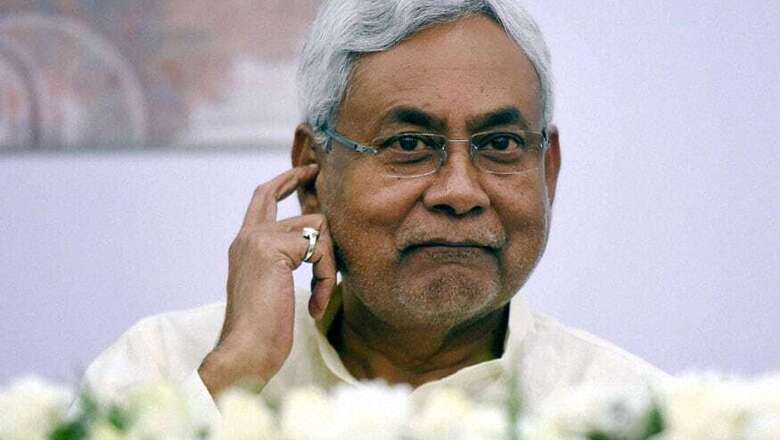
views
Patna: Indian socialists over the years have shown an uncanny knack and remarkable flexibility to devise a working relationship with both the BJP (Bhartiya Jan Sangh in its earlier avatar) and communists. The seamless transition from one end of the ideological spectrum to the other is so very unique to samajwadis and their innumerable offshoots, that no other political grouping has ever been able to match it in contemporary politics.
Thus, it wasn’t without reason that the proverbial cat was set among the political pigeons once Bihar CM, an inveterate socialist himself, vouched support for the midnight demonetisation call by Prime Minister Narendra Modi. Putting aside the acrimony of a bitterly contested election twelve months ago, BJP President Amit Shah was quick to appreciate the gesture.
The mutual admiration was construed in so many different ways. Some interpreted it in an attempt by Nitish Kumar to contain fledging ambitions of its alliance partner – Lalu Yadav’s RJD – which, despite being the single largest party in the grand alliance, is a junior partner in the government. While others saw it as a game of one-upmanship being played amongst regional satraps as they jostle for space in the run up to the next general elections.
An article by Harivansh, JD(U) MP and former editor of Ranchi-based daily Prabhat Khabar gives an interesting peek into what could possibly be the reason behind Nitish Kumar’s decision to break ranks from the opposition on this issue.
Harivansh then cites Bihar CM’s support to demonitisation and calls him an exception to this rule.
That Kumar is trying to be the exception to the rule has been evident in the last one year since his victory over BJP in Bihar polls. In his politics, Kumar has shown a distinct predilection to chart his own course – both in political narrative and in implementation of policies and programmes – which is independent of and un-hinged to what BJP does in general and Modi does in particular.
Political discourse in India, willy-nilly in the last five years has revolved around either un-qualified support for Modi and his politics; or on a visceral opposition to anything he does or says - an ‘us vs. them’ binary. This trajectory of views at large has come handy to the BJP to dumps all the others in ‘them’ category.
In other words, Kumar has attempted to delink himself from the political binary of Modi vs. others. And there seems to be sound logic behind it. In the process he’s sought to create his own narrative, independent of and impervious to the general cacophony around.
For instance, amidst the current impasse both inside and outside Parliament, political parties have come around to the view that they do not per se oppose any attempts to weed out un-accounted wealth in the system. Their objection is limited to the implementation of the scheme. The question arises why to oppose the government decision from day one. If the proof of the pudding is in the eating, let the pudding be served to the people.
Despite murmurs of opposition, Nitish Kumar brought in stringent law causing huge loss to the exchequer. Irrespective of the loss to the state revenues, can anyone, any political party afford to oppose liquor ban against aimed at weeding out a social evil? The same goes with the note-ban.
Learning from the analogy, Kumar, unlike most of his political contemporaries was quick to assess the situation and react accordingly.
But in doing that he’s also had to do a fine balancing act to underscore his commitment to the grand alliance he’s been leading in Bihar. Which is why, when things went a little out of hand, he had had to intervene to assert his commitment by accusing the Opposition of “spreading canards to politically assassinate me”.




















Comments
0 comment